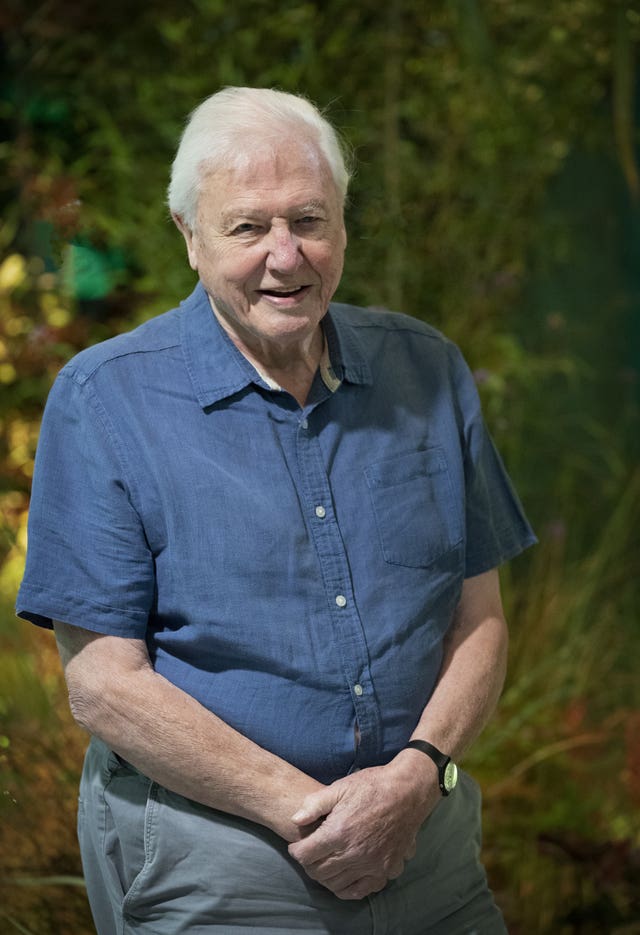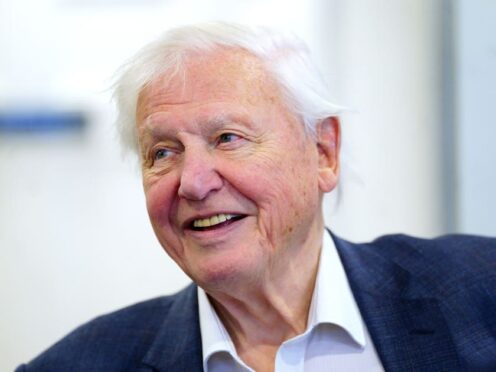Sir David Attenborough has said one of his only regrets is spending so much time working on overseas natural history programmes rather than focusing on British wildlife.
The 96-year-old broadcaster and naturalist recently revealed it was due to “internal BBC politics” when he joined the corporation in 1952 which led him to focus on documenting nature abroad rather than closer to home during his career.
He is now presenting a five-part series called Wild Isles which aims to shine a light on the variety and challenges affecting nature within the British Isles.
📺 In a Telegraph exclusive, the national treasure explains why, after a lifetime travelling, he’s glad to make Wild Isles on British soil https://t.co/HpApQCClpt
— The Telegraph (@Telegraph) February 17, 2023
Speaking to The Daily Telegraph magazine about the series, Sir David recalled how early on in his career he made an agreement with the BBC to focus on global wildlife while the corporation’s Natural History Unit, founded in Bristol in 1957, would produce stories on Britain.
He said: “There was a chap trying to establish Bristol then as a centre of natural history. He knew which strings to pull and I could see things coming to a head.
“Eventually we had a meeting and it was agreed I wouldn’t look at British natural history at all.
“Instead, I would go to Africa, South America and so on, and (they) could deal with natural history in Britain. I stuck to that until very recently.”
Reflecting on that agreement, he admitted: “If there is one thing I regret, and to be honest there isn’t a lot, it would be that I spent so much time doing overseas natural history.”
His upcoming series will have an introductory episode explaining why Britain and Ireland are globally important for nature.
The remaining four hour-long episodes will celebrate the isles’ four key habitats – woodlands, grasslands, freshwater and marine.
Asked whether British landscapes mean more to him than the exotic locations he has explore, he said: “Well, obviously, yes, because it’s the first landscape I understood.
“It is a continuous thread in my life. I went to Sierra Leone in 1954 on my first overseas trip and it was unforgettable, but I haven’t been back.”

Now in his seventh decade of broadcasting, Sir David feels he is “fantastically lucky” to still be able to work on a project like this.
“I can hardly believe it’s true. Here I am in my mid-90s and I’m still as active as I was in my 60s, or my 30s even,” he added.
“It is amazing that one can carry on.”
The series will also explore how nature and biodiversity have been affected and polluted over the years in Britain.
However, Sir David noted that he feels there has been a change in how society is recognising these issues, saying: “I won’t try and diagnose what the dynamic is but it is absolutely fundamentally different to the 1950s.”
He added: “Children now don’t write to me about the Wind In The Willows. They write about the real things.
“How disgusted they were when they walked along the beach with their mummy and picked up a sack of plastic.”
He credits teachers when helping to increase awareness, adding: “I know very well the teachers in the primary schools are doing a fantastic job.
“They spread the message. Teach a five-year-old that and it will last a lifetime.”
Wild Isles will be on BBC One and iPlayer in early spring.
